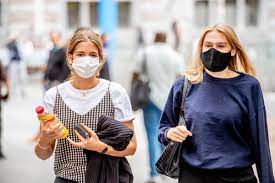
I am pretty sure I enjoy the sunny summer days just like the next person. It is the perfect time to relax and spend time with our loved ones. Many of us like to head outdoors for entertainment. We want to be at the beach, go hiking, biking, on camping adventures, or even have fun in our backyards. This is all fun, but summer comes with its downsides as well.
I’m not too fond of the allergies that come with summer. You may not be aware, but the summer climate affects allergens that may cause you allergy symptoms. Summer comes with allergens like pollen, mold, pet dander, and a lot of dust. These allergens do not care if you are indoors or outdoors. They can be anywhere- in the air, on your clothing, and your pet may carry them in their fur.
Mostly, these allergens will give you nasal congestion, a runny nose, itchy sinuses, sore throat, itchy skin, ear congestion, watery eyes, and many more. I have observed a couple of these symptoms with myself and my family members. Enough with the problems.
Below is my list of items that I have found practical in helping my family and me stay ahead of our summer allergies.
- Allergy Test Kit

Preventing summer allergies starts by specifically knowing what you are allergic to. But do you? If you don’t, it is time you get yourself an allergy test. This is how you can begin to take charge of your allergies and manage the symptoms.
Different things trigger allergies, from food to air and plant matter. Just like everyone is different, so are allergies. With the numerous allergens that lurk during summer, you must know which one brings you trouble and why.
To get yourself an allergy, sensitivity, and food intolerance test, head over to testmyallergy.com or use their mobile app available for iOS and Android. They will help you figure out what summer foods you may be allergic to and also the environmental allergens that may cause your triggers.
For you to do the sensitivity test, you only need to provide a sample of your hair. It tests sensitivities to inhalants, minerals, and vitamins. For the food intolerance and allergy test, you give a tiny blood spot for the experts to analyze your antibody reactions.
According to TestMyAllergy, you are more likely to have a food intolerance or an allergy if you suffer from immediate discomfort. If you have issues related to delayed digestion, you likely have sensitivity or intolerance. You will usually get your results within a week after you send your sample, and you also get test advice and helpful resources.
You can also get an allergy test from allergytest.co who have similar tests to TestMyAllergy but also have health tests to check for issues like iron deficiency.
Did you know that you can also be allergic to different things due to your genetics? Yes, you can.
You can get a DNA allergy test kit from myheritage.com. They test your allergy predisposition by evaluating your genes from only a cheek swab. The experts test a broad sample of people to see the association between allergies and gene variants.
- Face Masks
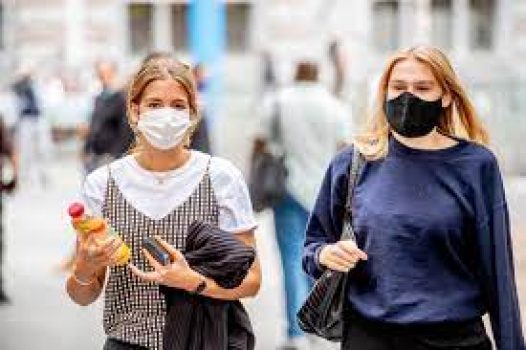
If there is one thing Covid-19 has taught us is how practical face masks are. If you want to protect yourself from summer allergies, having a face mask is a must, especially for nasal allergies. A face mask will cover your nose and mouth, and that is how it works to block allergens.
Various face masks are available, but medical or surgical masks are the best for allergen prevention. They are more effective in filtering allergen particles than cloth masks. That is not to say you can’t use cloth masks. If you decide to use masks made from cloth material, ensure you wash them after each use. You need to dispose of surgical or medical masks after use. Both ways ensure that your masks are free from allergens every time you put them on. I found Cambridge Mask Co an ideal place from where you can buy face masks with world’s no. 1 filter technology.
You can easily undo a face mask’s protection if you are not careful when taking it off because summer allergens usually collect on the mask’s surface. You can quickly transfer the allergens elsewhere if you touch the mask’s surface- your clothing, eyes, and other surfaces. Always remove your mask by the loops and dispose or throw it in the wash immediately.
Face masks do not resolve all allergy issues, so it is always best to use them alongside other preventative measures on this list.
- Allergy Medication
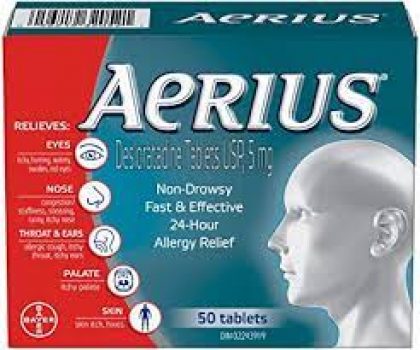
You can relieve your summer allergies by getting various allergy medications, which you can even buy over-the-counter. The best thing is you can get them for indoor and outdoor allergies. However, it would be best to get a professional to recommend them. Some have active ingredients that may cause you side effects like drowsiness, while some may only be efficient for particular allergies.
The most common allergy medications are antihistamines, which can be administered in different ways. You may take them orally in the form of pills or liquids. You can also get nasal sprays that relieve itching and congestion or eye drops for red, itchy, and watery eyes. You can also get allergy shots (immunotherapy/desensitization) to help with your summer allergies.
The treatment entails the administration of regular injections with tiny amounts of what causes your allergies. Eventually, these shots lessen the immune system’s reaction that brings about your symptoms.
Usually, the most effective allergy medication you are given will depend on your allergy symptom triggers and the kinds of symptoms you are experiencing.
- Allergen Vacuum
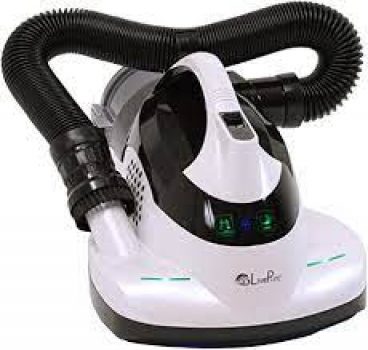
My family has different allergy sufferers, so I am big on vacuuming during summer. I feel I lessen, if not eliminate, most of the household allergens by vacuuming since the traditional dusting and cleaning methods do not remove allergens. My dogs are also furry, and I am pretty sure they highly contribute to the allergens on my carpets, rugs, curtains, upholstery, bedding, and other surfaces in my home. A vacuum is, therefore, a must.
As you get a vacuum for the allergens, get one with a high suction power to pick up the allergens, and also get one with a sealed system(bagged) to ensure it prevents particles from leaking from the cracks. A sealed vacuum will also not need frequent emptying, preventing allergen spread.
A vacuum that is easy to maneuver will also be practical in ensuring you do not miss some spots that may harbor allergens when cleaning. Sharkclean produce best allergy vacuums with a High-Efficiency Particulate Air (HEPA) filter. This feature allows the vacuum to have high efficacy for trapping microscopic particles before escaping into the air and catching pet dander, pollen, and mold spores. A vacuum cleaner that does not have a HEPA filter is less effective for eliminating fine allergen particles, and they become airborne again.
- Steam Inhaler
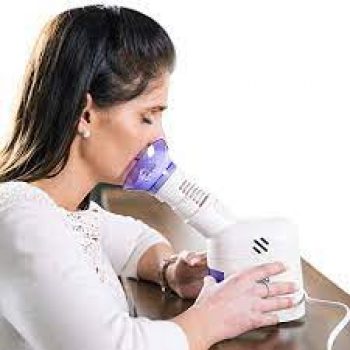
A steam inhaler is effective for soothing and opening nasal passages. This is what is commonly referred to as steam therapy. The technique entails inhaling moist and warm air into your system, allowing you to loosen up any mucus in your respiratory system. At the same time, it hydrates irritated air passages. That is how you relieve a sore throat or stuffy nose. It gives you much-needed relief when you need it, but it is not entirely meant to cure your allergy.
You can get a steam inhaler with an adjustable steam control, and there are even others with saline therapy and oil diffusing aromatherapy options. You can purchase ready-made saline solutions or buy them as kits to add to the water for your steam inhaler.
Other steam inhalers also have adjustable temperature control and automatic shut-off functions. The temperature and steam control features will help you reduce the risk of burns and scalds. Steam inhalers come in various sizes, and you can choose one that is easily portable if you travel in summer. As you use a steam inhaler, make sure you use clean/sterile or distilled water.
- Bath Treatments

Bathing is one way you can rinse off allergens like pollen that you may have in your hair or skin. You will keep other surfaces free from allergens. Once you come from outside, make sure you take a shower and use hair shampoos and conditioners for a thorough wash. I use those scented with peppermint or tea tree for my sinuses.
If you have more time, taking time in the bathtub is always worth it. There is nothing more relaxing than a nice bath when you have come from the hot outside weather during summer. But the bath becomes even better if you can reduce allergic reactions you may have gotten, like congestion and sinus problems, while relaxing your muscles. That is what a good bath treatment can give you.
Bath treatments come in various forms but mainly as bath soaks and salts. What you need to do is dissolve them in your bathing water. Usually, manufacturers enhance these allergy treatments with powerful essential oils and natural extracts like ginger, lemon, aloe vera, menthol, and Echinacea which are suitable for relieving allergic symptoms.
Besides reducing congestion, bath salts can also help you if you suffer from skin irritation caused by poison ivy and inflammation. The essential oil formula helps provide your skin with antiseptic, anti-inflammatory, and antimicrobial properties.
- Dehumidifier
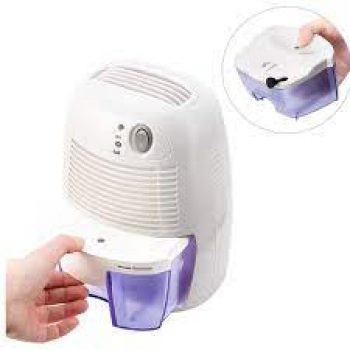
Summer months bring humid air, which can be very uncomfortable and make a place feel stuffy or even claustrophobic. While you can’t change the oppressive outside summer air, you can do something about the air in your home. That is why you can benefit much from a dehumidifier. This is an appliance that helps you control humidity by removing water vapor. You are now probably wondering why you would need this appliance for summer allergies.
Since a dehumidifier gets rid of air moisture, it can help you eliminate potential allergens like mildew and mold. It improves the air quality as well. Again, it prevents inhaling damp air, which can contribute to allergic symptoms like wheezing and coughing. If you keep your home’s relative humidity between 30-50%, you can considerably lessen the growth of allergens.
When choosing your dehumidifier, get explanations about its capacity- the number of water pints it can remove and at what time. You should check with your supplier what levels will not make the dehumidifier remove too much moisture from the environment since dry air can also irritate the respiratory system- nose and throat. This can potentially worsen respiratory allergies.
When the dehumidifier is running, it is best that you close your doors and windows. This will increase the dehumidifier’s efficiency and prevent more allergens like dust mites from spreading further in the house.
- Air Purifier
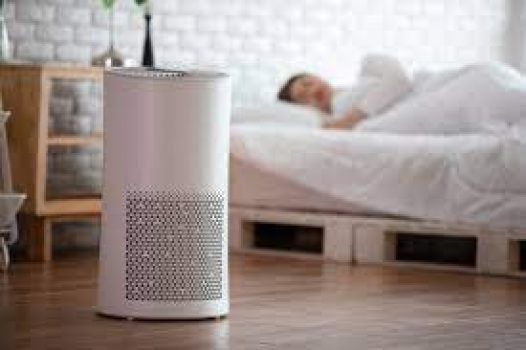
Because indoor air quality is something I feel many of us tend to ignore when it comes to summer allergies, I felt the need to add an air purifier. An air purifier works by sieving out bacteria and allergens like pollen and mold, which can alleviate allergic reactions. It pushes back filtered and clean air into the atmosphere.
The air within your home also contains solid particles that vary in size in different allergens. For example, the dust has finer particles than pet dander. These particles can trigger allergic reactions, and they are what air purifiers remove. Air purifiers can help reduce respiratory, eye, and skin allergies.
Air purifiers come in different varieties, but I recommend getting a HEPA air purifier since it can remove the tiniest of allergens.
Before getting an air purifier, ask the expert what triggers it can attack. It would be best if you also got a purifier from TruSens which suits the size of your area or room- find out the purifier’s room coverage. Air purifiers will be an additional means to capture the sources of allergens, but they work best when combined with other air improvement precautions such as proper ventilation.
- Bedding Protectors
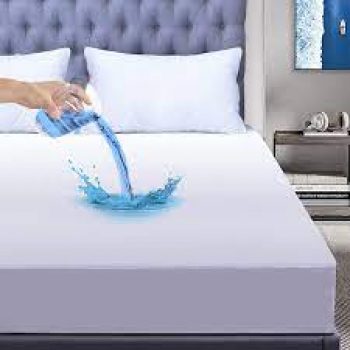
Summer typically increases dust mite allergies. Dust mites will usually flourish with increased humidity, and your beddings are typical habitats for them. You kill dust mites by washing your beddings, and that is where bedding protectors come in.
You may be using mattresses, bedsheets, and pillow protectors every day, but you may not know how handy they come in for preventing dust mites and other summer allergens.
Traditional bedding highly attracts dust, but going for specific bedding protectors will go a great way in combating allergies. Go for hypoallergenic beddings designed to keep dust and mold at bay due to their tight-weave structures. The best materials to buy are cotton, microfiber, silk, and Tencel.
Your bedding protectors will require regular washing and changing if you want to prevent allergens significantly. Hot water has a better ability to get rid of bedding allergens than cold water.
Hypoallergenic Skin and Beauty Products
This is a broad category that includes items you will need for your skin. We unknowingly focus more on the allergies we get inside our bodies and less on what allergic reactions can do to our outer bodies.
As you know, summer can be sweltering. Due to this, many of us tend to get skin allergies. The weather, activities, and allergens can worsen skin conditions like psoriasis, contact dermatitis, eczema, and hives, causing bumps, rashes, redness, and swelling.
If you are allergic to the summer pollen or even foods, it is likely that you are allergic to some fragrances and oils in skin products, including some that may be labeled “organic” or “natural.” In that case, it is best to go for hypoallergenic skin and beauty products. Necessities for skincare under this category would be allergy-safe-moisturizers, sunscreens, cleansers, body washes, creams, or lotions for those with sensitive skin. Beauty products here include lipsticks, mascara, eyeshadow, face powder, etc.
There are many brands in the market, but allergies can be life-threatening. If you have severe conditions, always talk to your doctor for the best recommendations.
Final Thoughts
Summer is a primary allergy time for most of us since we spend most time outside. But some of its allergens will also be within our homes. It is challenging to avoid all the stuff out there you may be allergic to. However, you can try to lessen the allergens or get your symptoms under control.
The best approach is first to do a test to determine what you are allergic to and begin avoiding the triggers or find out ideal treatments.
Summer allergies can be draining and turn the good times into awful experiences. However, by using the recommended items on my list, you will be able to relieve yourself from most of the allergies and enjoy your summer a little better. They may not wholly avoid your allergies, but they may lessen or alleviate your allergic reactions.
Always take great care when using allergy medication, and also speak to your allergist or primary care physician if you don’t see much relief or improvement. If you have children, you should also help them use some items like steam inhalers for safety.






